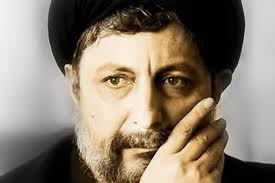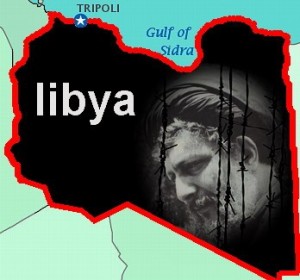 The Shiite Muslim community of Lebanon was on Friday marking the 34th anniversary of the disappearance of its erstwhile spiritual leader, Imam Musa Sadr, after a remarkable claim by the country’s foreign minister that he is still alive.
The Shiite Muslim community of Lebanon was on Friday marking the 34th anniversary of the disappearance of its erstwhile spiritual leader, Imam Musa Sadr, after a remarkable claim by the country’s foreign minister that he is still alive.
The Iranian-born cleric has not been seen since he went missing on a 1978 visit to Libya as a guest of Muammar al-Qaddafi. He and two companions are widely believed to have been murdered on the orders of the Libyan leader, either for political motives or as a result of a theological dispute that got out of hand.
But on Tuesday, Adnan Mansour, Lebanon’s Shiite foreign minister and a member of the pro-Syrian Amal party, said in an interview that the imam was still alive and would soon be released.
Mr. Mansour made the comments while attending a summit of the Non-Aligned Movement in Tehran, where he previously served as his country’s ambassador.
He is not the first to suggest that Musa Sadr was kept alive by the Qaddafi regime in the years since his disappearance. However, the timing of his intervention raises the question: why now?
Musa Sadr, who would now be 84, remains a potent figure more than three decades after his disappearance. And Friday’s ceremonies to commemorate him coincide with rising tensions within Lebanon over events in neighbouring Syria.
As Josh Wood reported from Beirut this week, the spillover from the civil war in Syria increasingly threatens Lebanon’s stability.
Lebanon’s powerful Hezbollah movement and the more secular Amal, founded by Musa Sadr, are traditional allies of the Assad regime in Damascus, which is battling a predominantly Sunni rebellion.
Hannan Ghaddar questioned in an IHT Global Opinion article this week whether Hezbollah could survive the collapse of the Bashar al-Assad regime.
“Hezbollah, long Syria’s powerful proxy in Lebanon, has become a wounded beast,” she wrote. “And it is walking a very thin line between protecting its assets and aiding a crumbling regime next door.”
In a separate article this week, Ms. Ghaddar, the editor of NOW Lebanon, said Nabih Berri, the long-time leader of Amal and the Shiite speaker of the Lebanese parliament, was already distancing himself from the Damascus regime.
Ms. Ghaddar said Mr. Berri was detested by Hezbollah, Amal’s ostensible ally, and faced a double threat to his survival if the Assad regime fell. “When Assad goes, Hezbollah will try its best to hold on to Lebanon, under full Iranian influence this time. Without Assad, what is Berri going to do?”
One option, in a battle for the hearts and minds of the Shiite community, might be to revive the memory of Lebanon’s missing imam, revered by both Amal and Hizbollah.
Musa Sadr’s reputation is as a moderate and a conciliator who helped awaken the consciousness of the economically and socially marginalized Shiites. He disappeared just months before Ayatollah Ruhollah Khomeini led the Iranian revolution that overthrew the Shah. Ayatollah Khomeini went on to sponsor the rise of Hezbollah to confront the Israeli occupation of southern Lebanon.
The memory of the charismatic Musa Sadr resonates among Shiites, whose faith includes a belief that their 12th imam has been hidden for more than a thousand years and will return to bring justice to the world.
 As every year, Amal activists were busy erecting posters of Musa Sadr — alongside posters of Mr. Berri — to mark Friday’s anniversary. With the future of Syria uncertain, some suggest there is a greater motivation this time to reinforce the link.
As every year, Amal activists were busy erecting posters of Musa Sadr — alongside posters of Mr. Berri — to mark Friday’s anniversary. With the future of Syria uncertain, some suggest there is a greater motivation this time to reinforce the link.
“Nabih Berri risks losing his connections and he may have to challenge Hezbollah as leader of the Shia community,” Franklin Lamb, an international lawyer undertaking research in Lebanon, told Rendezvous. “That’s why he’s wrapping himself tighter in the mantle of Musa Sadr.”
Dr. Lamb suggested in an article in Counterpunch in June that it was more useful for certain elements within Lebanese politics to maintain the mystery surrounding Musa Sadr rather than have him pronounced dead.
“Why after nearly a year into the post-Qaddafi period was the case not solved with help from Lebanon despite several trips by officials allegedly for the purpose?” he wrote. “Is it because some Lebanese politicians do not want the truth to be known?”
There is broad consensus that the imam died sometime after his abduction by the Libyan regime. An indictment that Lebanese authorities issued against Col. Qaddafi held him responsible for Musa Sadr’s disappearance.
A definitive answer will likely depend on DNA results from remains that Libya’s new authorities believe may be those of the missing imam. Until then, the mystery and the myth will endure.
NY Times

Leave a Reply
You must be logged in to post a comment.